"EdTech Speed Dating with Games": How Instructional Video Games Are Supporting Education
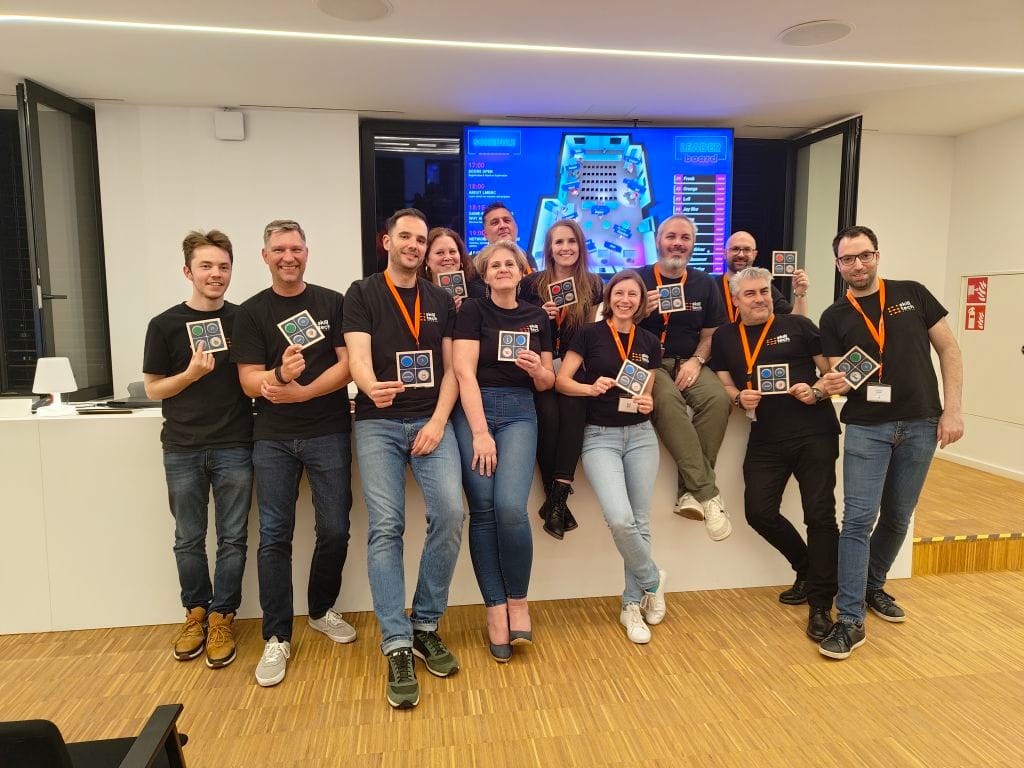
On 27 March 2025, we had the pleasure of hosting an inspiring and jam-packed event titled « EdTech Speed Dating with Games », held in the conference room of the Luxmill building.
The fourth LMDDC workshop event brought together a vibrant group of participants: teachers, game designers, industry leaders, EdTech specialists, developers, students, technologists, and professionals from public training and lifelong learning organisations such as the INFPC and the CNPFC. We also welcomed special guests, including representatives from LIST, Edugamitec, Virtual Rangers, and the BTS Gaming Students from Lycée des Arts et Métiers (LAM). These individuals are all united by a shared mission: to explore how game-based learning can transform 21st-century classrooms into more engaging and meaningful learning environments.
Throughout the workshop, attendees had the opportunity to test and interact with our self-developed prototypes. They spanned multiple formats, devices, and pedagogical approaches, offering something for everyone. Whether through VR, mobile platforms, or interactive board games, each prototype reflected our deep commitment to blending educational value with playful design. Participants also had the chance to network and exchange ideas with the LMDDC team and each other in a hands-on, collaborative atmosphere.
Organising a workshop of this scale and energy didn’t happen in isolation; it was the result of seamless collaboration. The Multimedia and the Platform teams worked hand-in-hand, with Gira Szakmar, Juri Pelzer and Jimmy Fischer contributing on the one hand, and Jessica Meldon and Ludovic Kiffer on the other. They each brought their expertise to the table, covering everything from game development and user experience to pedagogical alignment and technical deployment. They also handled the setup, facilitation, and live demos without a hitch.
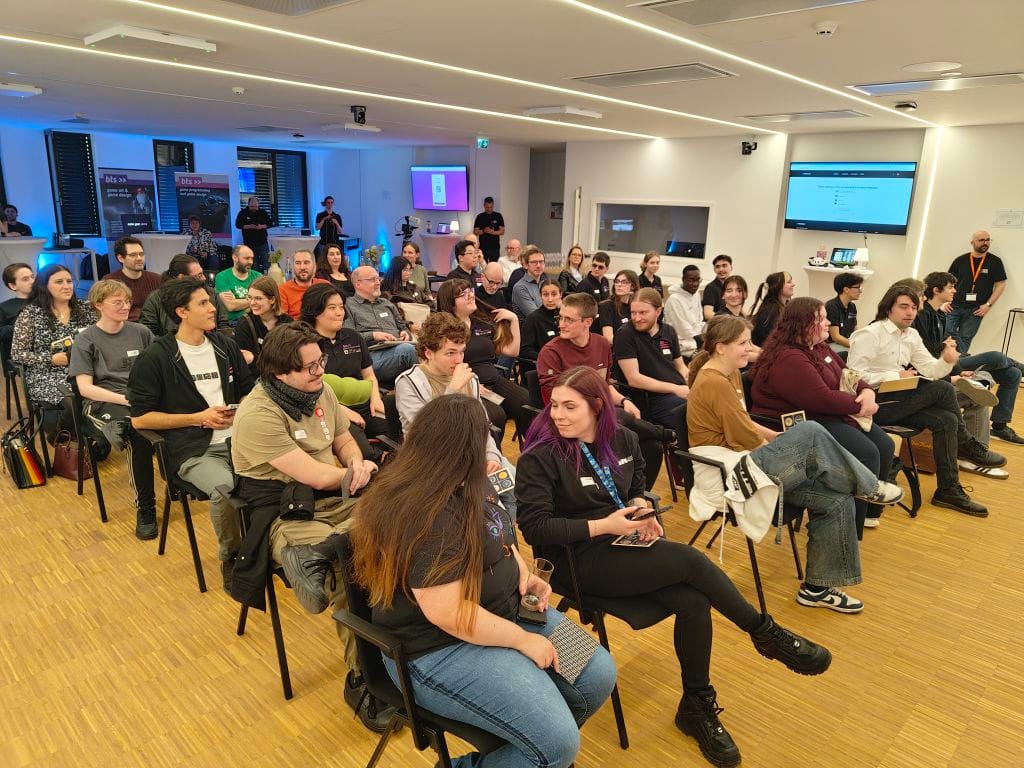
Local schools such as the LAM played a vital role in ensuring the day’s success by helping to recruit participants who brought fresh perspectives and contagious enthusiasm. Finally, the event was further elevated by the presence of special guests, who showcased their own solutions, provided additional areas for exploration and shared insights that fuelled deeper discussions on the benefits – and challenges - of game-based learning.
The Orbit team from LIST and the University of Luxembourg brought along something that really stood out: a large interactive table that got everyone curious. The ORBITIA game lies at the heart of their research project on collaborative problem solving, in which players must execute a tricky mission. They cannot succeed alone, but must work together and coordinate effectively, especially when faced with unexpected events. Using a cooperative device such as a tangible tabletop provides players with a straightforward, natural interface and enables direct verbal and non-verbal communication around the shared gaming space.
Edugamitec showcased two of their learning tools. First is Memomoti, which allows children to turn their homework into quick games that they actually want to play. Then there’s Gamtred, built to help adults learn important things like sustainability through games. The focus is on making learning fun, whatever your age.
Virtual Rangers, one of the top VR teams in Luxembourg, returned this year with more exciting virtual experiences. You can walk through history, explore health topics, or dive into nature - all without leaving the room! It’s a great way to experience how VR can transform learning from something you read about into something you can feel.
Last but not least, the BTS Gaming students from Lycée des Arts et Métiers presented their own games. These future game creators made some incredibly creative and clever learning games.
Kicking Off with a Powerful Keynote
The workshop got off to a strong start with an introduction to the LMDDC and its role in advancing educational game development, courtesy of Thibaud Latour. Next, Gira Szakmár took to the stage with an interactive presentation on how games can bring people closer, broaden horizons, and transform the way we learn. She made it clear that instructional video games are serious learning tools that promote innovation, persistence, and critical thinking - not just “fun extras”. In short, education should be an adventure, not a long tutorial or a compilation of reading materials. Games aren’t replacing teachers; they’re empowering them. To support her presentation, she led a compelling large-scale experiment in which the whole room participated in a networking bingo. Designed as a social icebreaker, this enjoyable activity helped participants to meet and connect with each other.
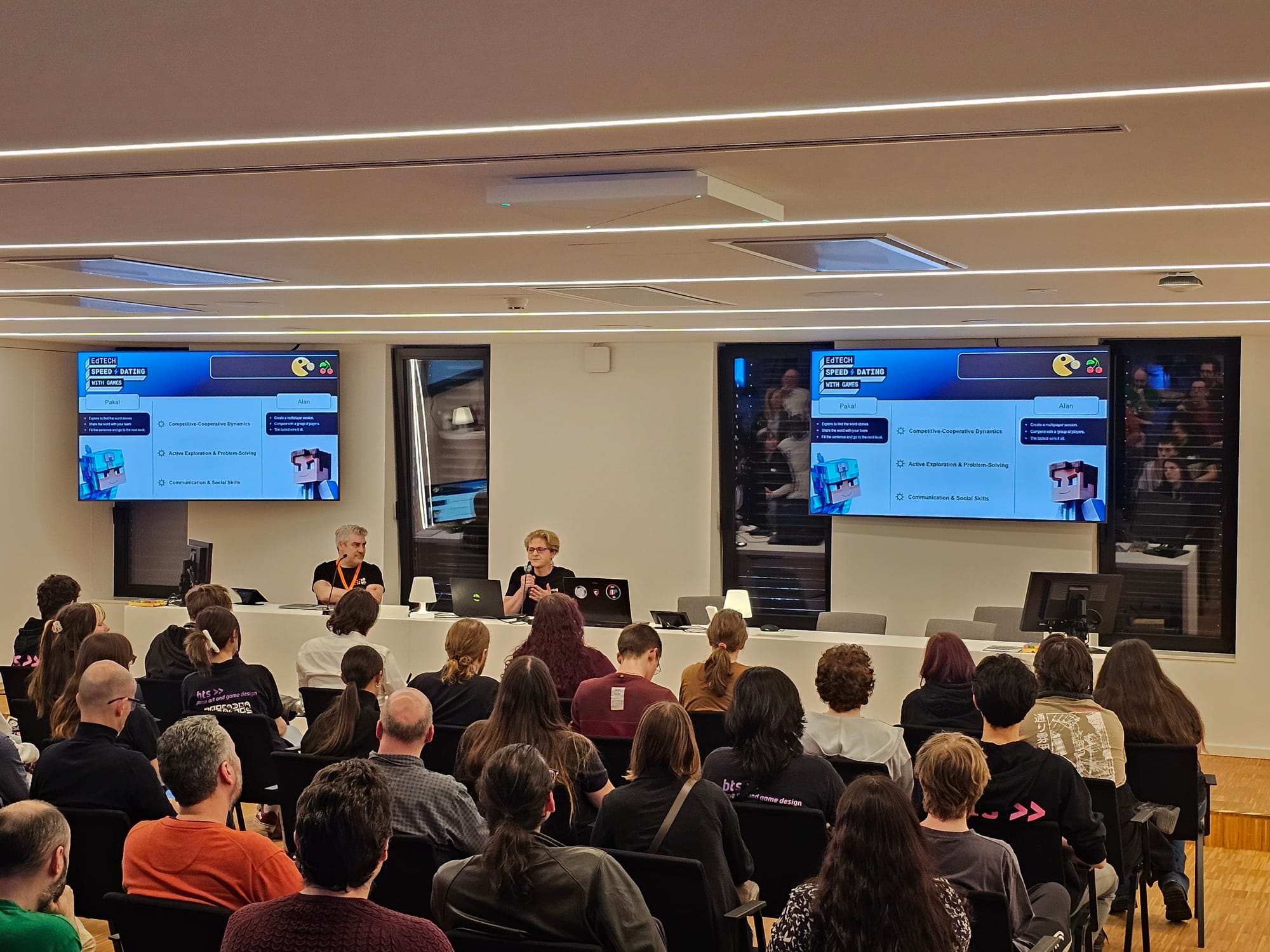
Hands-On Exploration
From the moment they arrived, participants became part of the experience, diving straight into Shigeru, an onboarding treasure hunt accessible via a QR code or the dedicated application. This was just one of several LMDDC prototypes designed to solve problems, encourage collaboration, and stimulate creativity among people who could be either classmates or complete strangers. Each prototype had its own persona. In our “EdTech Speed Dating with Games” format, all the ‘dates’ are inspired by real or imaginary figures, ranging from legendary programmers to fairy-tale characters. We have created unique papercut figures for each one, providing guests with a playful visual anchor and a friendly face to connect with during their journey.
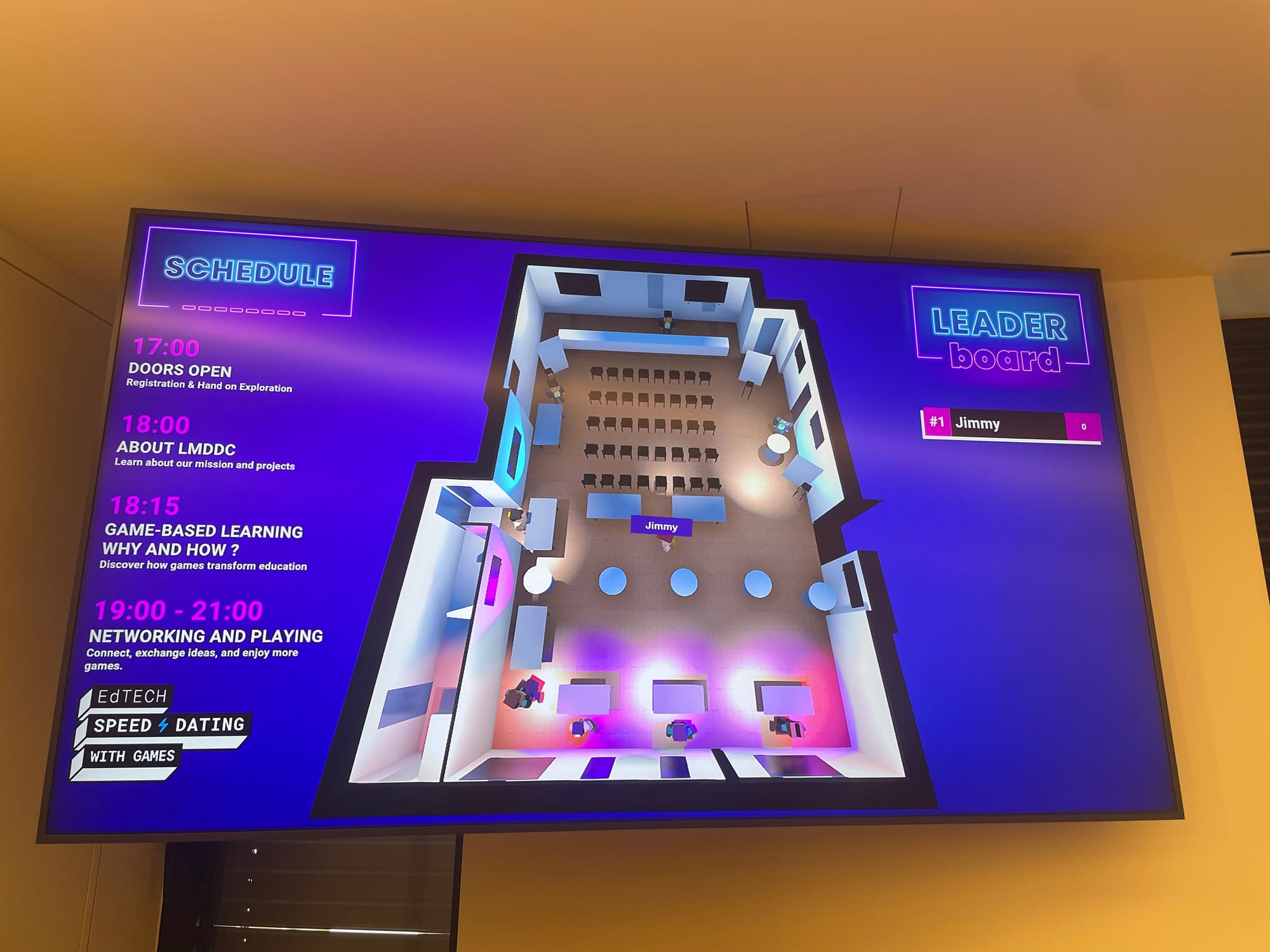
Shigeru is an onboarding treasure hunt that gets participants moving, exploring, and engaging with their environment. Players using the Shigeru application are challenged to visit various stations, scan QR codes, and answer questions. As they progress, they unlock the stations and update the live map and the leaderboard on the main screen, adding an element of friendly competition. Shigeru transforms orientation and training events into interactive, curiosity-driven experiences where players collect knowledge, rather than just ticking boxes. It’s great for informal learning and team building, and for making new environments feel like part of the game.
Rapunzel is an immersive VR game that turns the classic fairy tale into an educational adventure. Players explore the tower, room by room, looking for hidden objects. However, each item is locked behind an educational question that players must answer correctly to receive the next riddle. These riddles form a trail of clues leading to the next item, encouraging players to observe their surroundings, think critically, and apply their knowledge. The game comes with an authoring tool that allows educators to customise the questions and adapt the game for different subjects, ranging from history to science. Blending exploration, narrative and problem-solving, Rapunzel is an engaging and educational hidden object game.
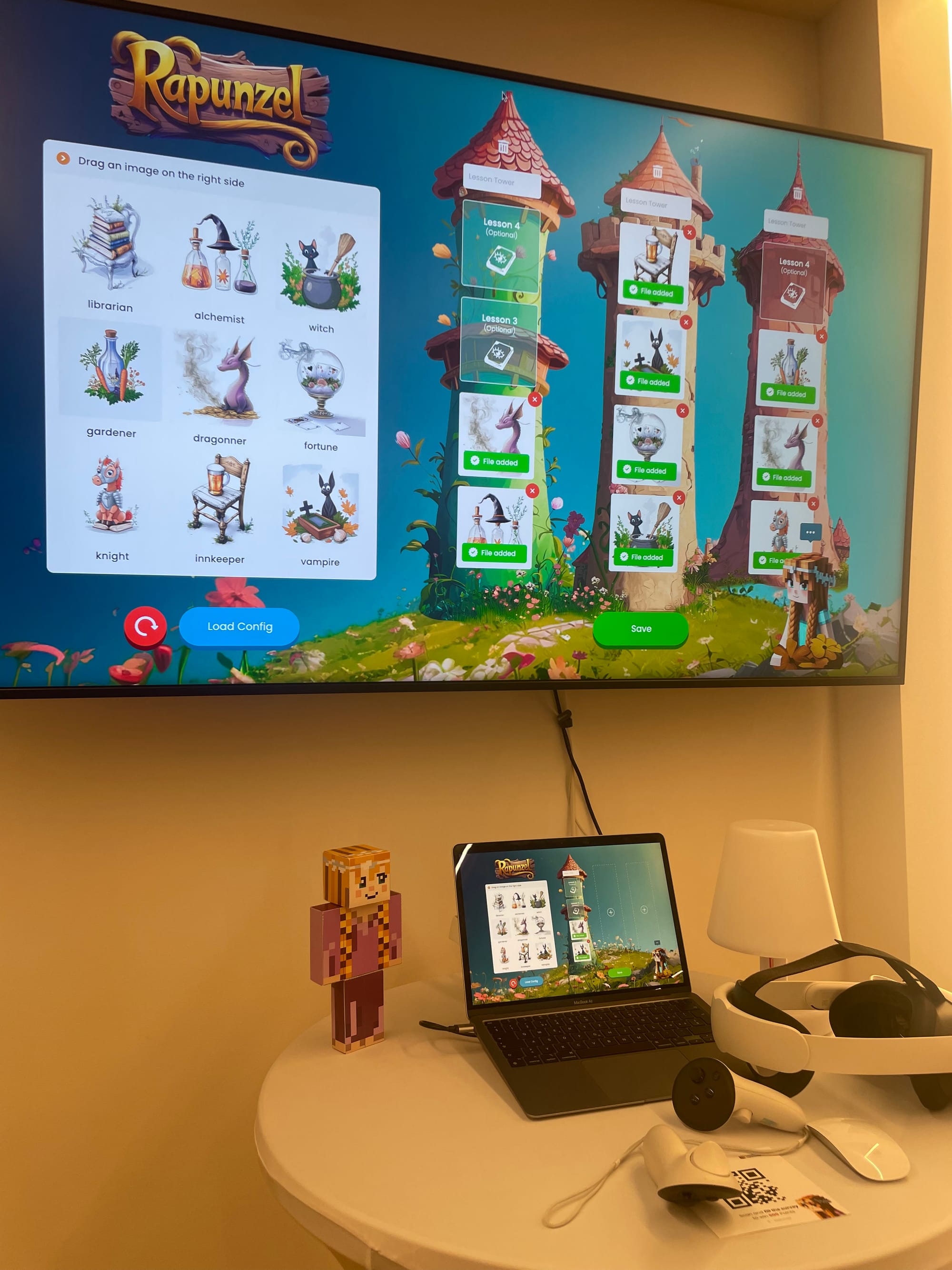
Pakal is a cooperative mixed-reality game that draws inspiration from the spirit of ancient discovery. One player wears a VR headset and explores a mystical world in search of coloured stones engraved with words. The rest of the team, gathered around a screen, sees a sentence with missing parts. As the VR player finds each stone, they share its word and colour with the team, who then try to place it in the correct position in the sentence. Once the sentence is complete, a colour pattern is revealed that the VR player must then reconstruct in order to unlock the altar. Success in this cooperative, communication-based game depends on everyone contributing their piece of the puzzle.
In Alan, learners compete against each other in this fast-paced mobile quiz game by answering questions as quickly and accurately as possible. Every correct answer moves players forward on the track - the faster they respond, the further they go. It’s fully competitive, but in a light-hearted and playful way, with individuals under pressure rather than groups. Alan reinforces knowledge recall, reaction time, and concentration under pressure, making it an excellent tool for revision, drills, and classroom energisers. It shows how positive competition can drive focus and engagement - one tap at a time.
Ralph is a conversational AI inspired by Ralph Baer, the “father of video gaming”, which is designed to bring the history of gaming to life through natural conversation. Appearing as a digital avatar on a large screen or in VR, Ralph uses speech-to-text and text-to-speech technology to listen to and respond to users, creating a truly personalised interaction. Unlike traditional web searches, Ralph provides focused, context-rich answers without any irrelevant distractions, encouraging learners to delve deeper into a subject simply by asking questions. If you're curious about Baer's inventions, early game consoles or the evolution of game-based learning, Ralph is your knowledgeable companion. His friendly, non-judgemental responses encourage learners to explore freely, ask questions and connect with history in a human way, despite his digital nature. Fun fact: despite his advanced age, Ralph was ready for everything except for the high noise levels in the workshop environment—read ‘passionate background conversations’ - so participants sometimes had difficulty interacting with him effectively, leading to misinterpretations.
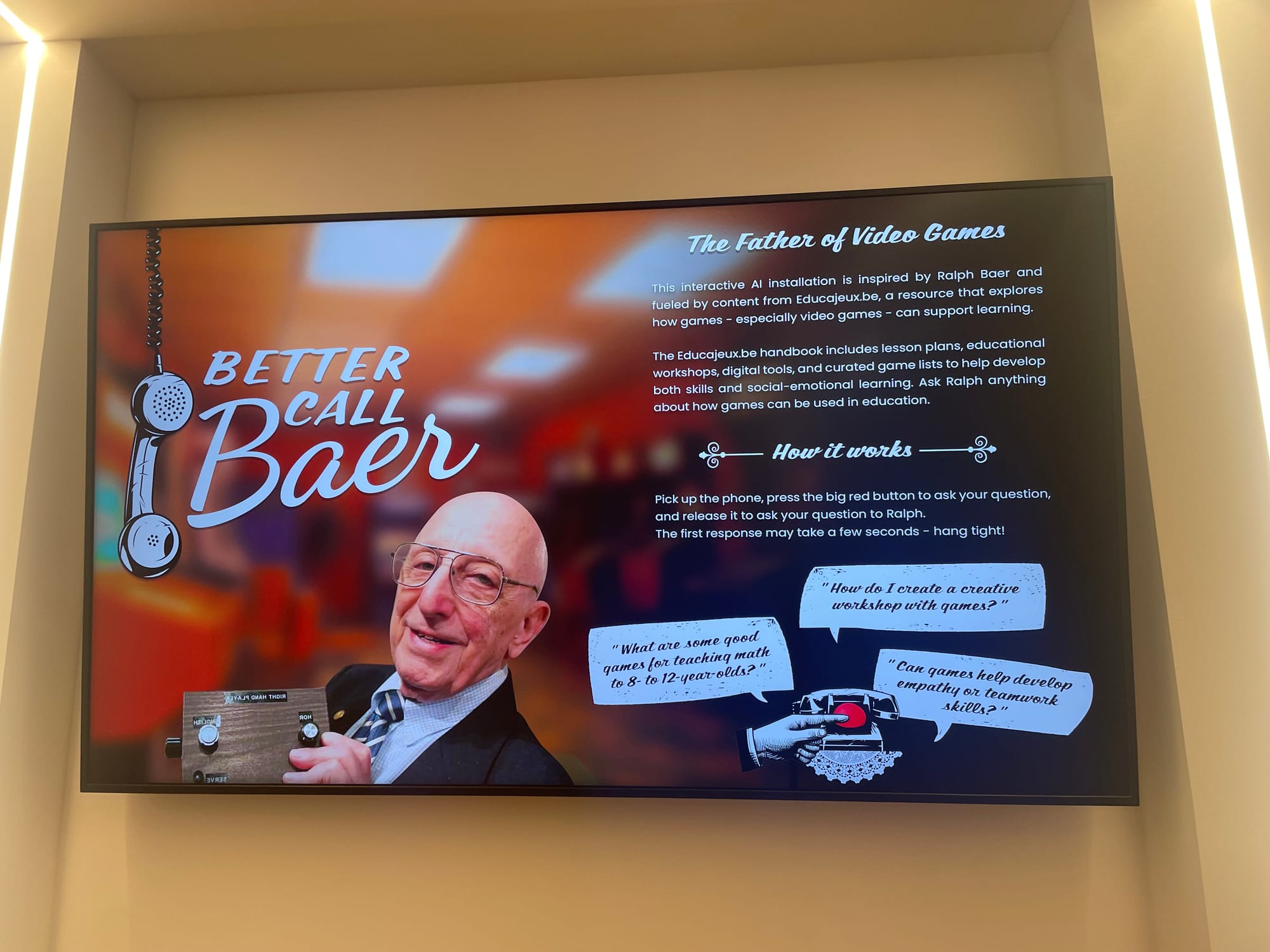
Drawing inspiration from John Carmack, the legendary programmer behind groundbreaking games like Doom and Quake, Carmack immerses you in the world of cybersecurity through the Hackanator game, or allows you to explore any subject via interactive storytelling. Learners navigate branching narratives packed with security dilemmas, coding puzzles, and ethical decisions. Using the Tuesday.js-based editor, educators and students can create their own story-driven learning experiences, making Carmack a powerful tool for scenario-based learning, creative writing, and digital literacy. Whether they are playing or authoring, learners engage with technology as thinkers, creators, and problem-solvers, rather than just users.
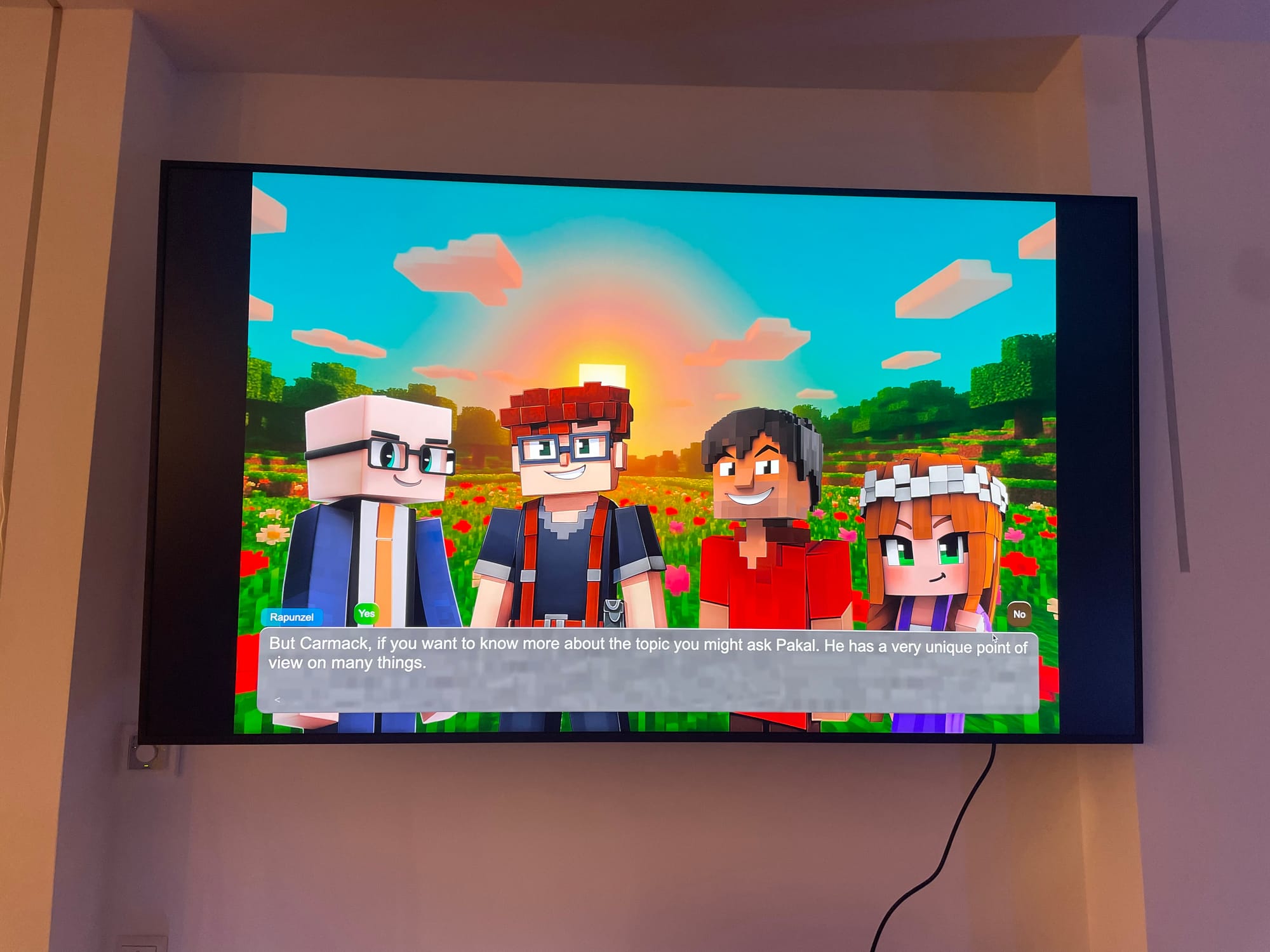
What participants took home
What do participants take home from EdTech Speed Dating with Games? More than just memories! They leave with a sense of adventure and inspiration from an evening where learning and play came together in the best possible way. Each attendee receives a digital toolkit designed to help them maintain their momentum. This includes a custom app offering curated educational game recommendations categorised by subject and learning goals, as well as a card deck with multiple rule sets that encourage creativity and replayability at home or in the classroom - users can even invent their own! However, the most valuable takeaway is perhaps the sense of connection. Participants gained access to an online community, offering ongoing collaboration, fresh ideas, and support for incorporating digital education into their daily practice. This could be the start of an empowering - and sometimes playful - learning journey.
1) Connecting Diverse Learners
One of the most powerful outcomes of this workshop is the ability of instructional games to bring people together, transcending the divisions that often separate us, such as age, gender, background, experience and professional sector. In other words, they lower all sorts of barriers by being inclusive. Well-designed, tech-savvy games with intuitive controls allow learners to enjoy them without needing to master complicated technology first. In terms of conventional academic performance, they solicit a different set of skills, rewarding exploration, adaptability, and creativity. In regard to motivation, they reduce boredom and disinterest by making learning enjoyable and purposeful.
They create a shared space where learners can collaborate, experiment, and tackle problems together. Unlike traditional classroom activities, which often rely on prior knowledge or a specific context, games provide visual, interactive and engaging environments in which players learn by doing.
But it goes beyond that.
In multiplayer games such as Orbitia, Pakal or Hackenator, students from different grade levels or backgrounds can collaborate to achieve shared goals, such as assembling a puzzle or designing an online tool that teaches young users how to stay safe online. Such experiences naturally foster communication, empathy, and teamwork. As success in these games often hinges on diverse approaches, students swiftly grasp the value of exposure to various perspectives and mindsets - a prerequisite for critical thinking.
Games also create intergenerational opportunities. Teachers shared stories of students helping their parents navigate educational games at home, as well as older students mentoring younger ones in class-based game challenges. Age becomes an asset, not a barrier, and experience becomes something to share rather than hoard.
In an increasingly polarised world, the workshop made a compelling case that educational games can be more than just tools for learning. They can also foster understanding and connection among learners.
2) Learning Should be Fun!
A core truth from the event was that learning should be enjoyable, provided the methods employed are well designed to capture students’ interest and align with pedagogical objectives and curriculum standards. This does not mean that learning should merely be entertaining; rather, it should be approached in a deeper, more intentional way, because joy is a powerful catalyst for curiosity, creativity, and long-term retention. When learners are genuinely enjoying themselves, they are actively engaging with information rather than passively receiving it. They ask more questions and are more willing to take risks. They interact with content dynamically, testing ideas, making connections and applying concepts in meaningful ways.
Instructional games naturally facilitate this process. They challenge learners just enough to spark motivation without overwhelming them. They reward persistence and foster an environment in which failure is embraced as part of the learning journey. Through repeated trials and immediate feedback, students develop resilience and agency — two key ingredients for lifelong learning.
In this context, fun isn’t frivolous. It’s motivational fuel. It creates emotional stakes and immersive contexts in which knowledge becomes relevant and memorable. Real, enduring learning takes root when classrooms are transformed into spaces where discovery feels exhilarating and learning feels like play. The attention is not on simplifying content, but on igniting a passion for it.
This insight was not just a passing theme, but a shared conviction among everyone in the room: joyful learning is not a luxury or an add-on, but the very foundation of 21st-century education.
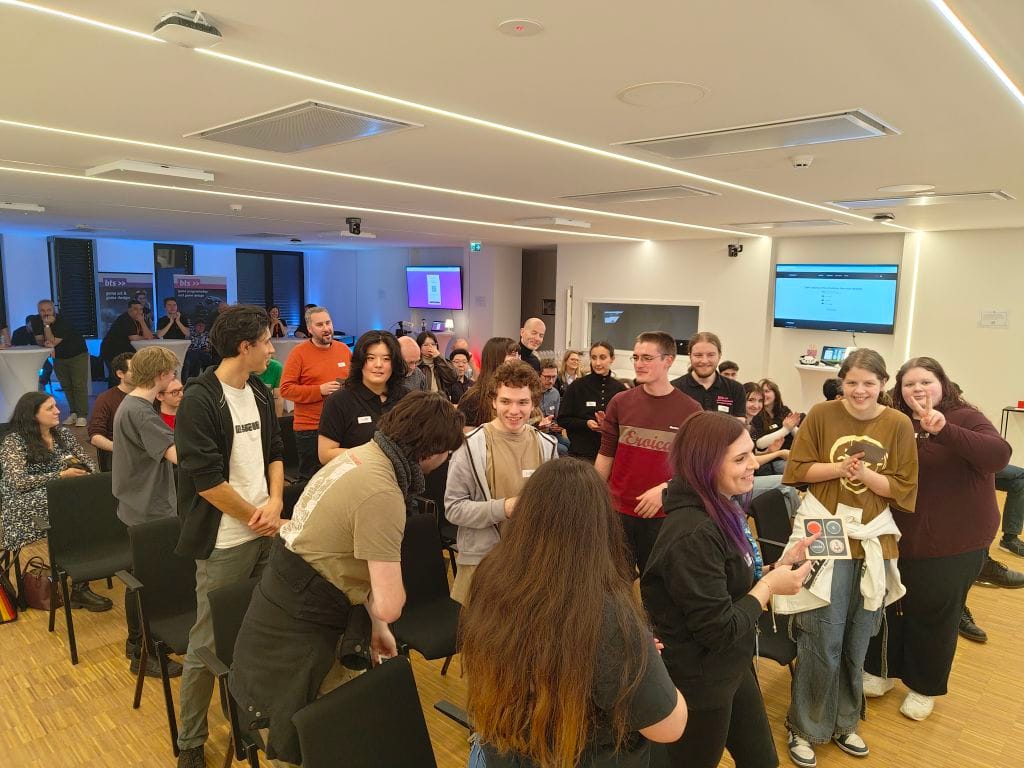
Game on!
This workshop reminded us of something vital: Learning doesn't have to be static. It can be dynamic, playful, and, yes, even a little competitive. When designed and implemented thoughtfully, instructional video games are much more than digital distractions. They are tools for equity, engagement, and exploration.
As classrooms continue to evolve, it’s evident that game-based learning is not just a passing trend - it’s a movement.


